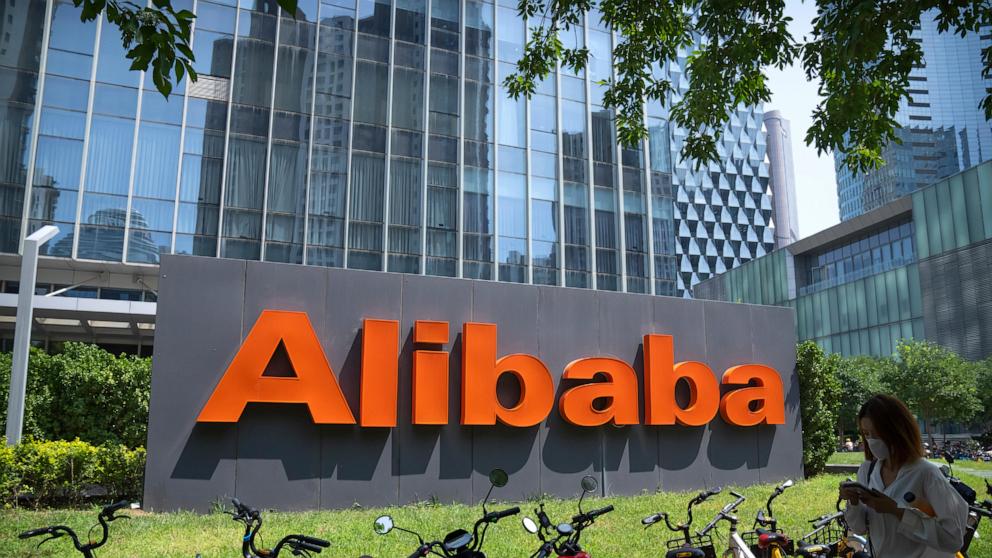Chinese e-commerce company Alibaba Group Holding Ltd. posted a sharper-than-expected drop in fourth-quarter profit on Tuesday due to the impact of equity investments, sending its stock price plummeting in New York.
HONG KONG — Chinese e-commerce company Alibaba Group Holding Ltd. posted a bigger-than-expected drop in fourth-quarter profit on Tuesday due to the impact of equity investments, sending its stock price plummeting in New York.
Net profit for the quarter ended March was 3.3 billion yuan ($453 million), down 86% from a year earlier and below analysts' expectations. Alibaba said this was mainly due to a decline in the market value of its equity investments.
However, sales exceeded expectations, rising 7% to 221.8 billion yuan, as the company refocused its efforts in recent months to grow its e-commerce business amid increased competition from rivals such as Pinduoduo and Douyin and a slowing Chinese market. ($30.73 billion). economy.
“This quarter's results demonstrate that our strategy is working and that we are returning to a growth trajectory,” Alibaba CEO Eddie Wu said in an earnings call.
Quarterly sales of the company's e-commerce platforms Taobao and Tmall increased 4% compared to the same period last year.
The company said its cloud division's revenue increased by double digits year over year, and artificial intelligence-related revenue from external customers grew by triple digits. Detailed figures for the cloud business were not disclosed.
Alibaba also announced on Tuesday that it aims to convert its secondary listing in Hong Kong to a primary listing by the end of August this year.
The company's shares fell more than 7% in New York on Tuesday after the results.
Alibaba's stock price has fallen more than 70% from its October 2020 high. The Hangzhou-based e-commerce company has struggled with investor confidence in recent years due to regulatory crackdowns in the technology industry and increased competition in the e-commerce industry.
Last year, the company carried out a major reorganization with the aim of maximizing shareholder value, dividing its business into six divisions. Each division could raise its own capital and eventually go public.
However, plans to acquire Alibaba's logistics and cloud businesses were ultimately scrapped as Alibaba claimed it was “challenging the IPO market conditions.”


